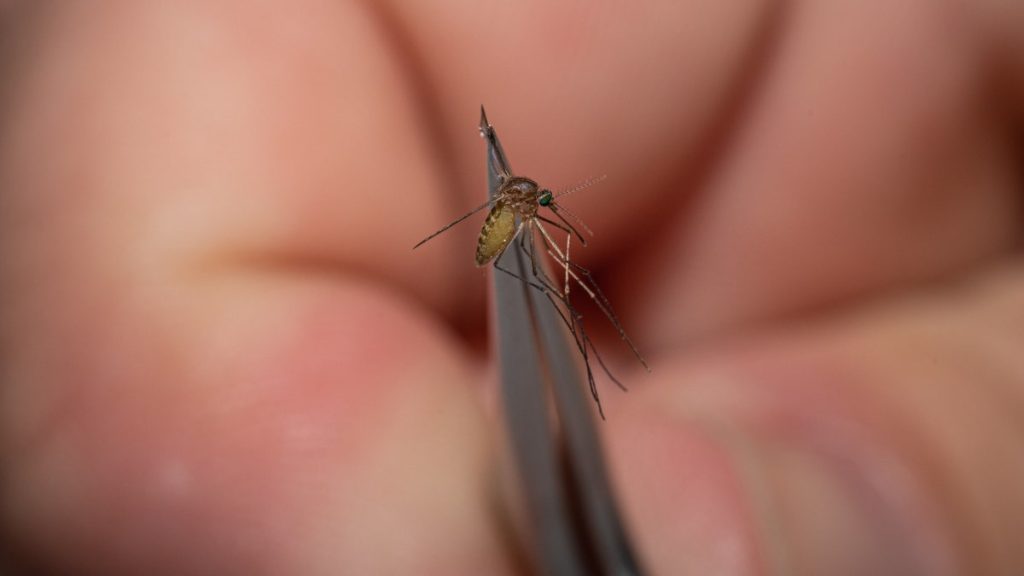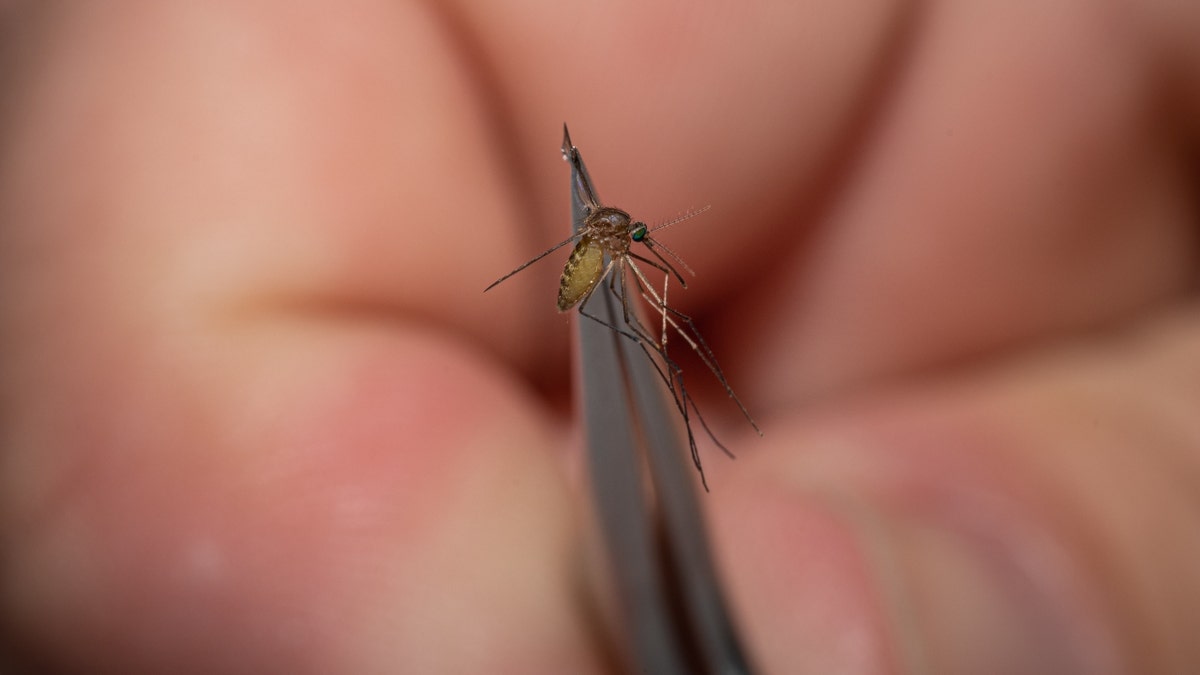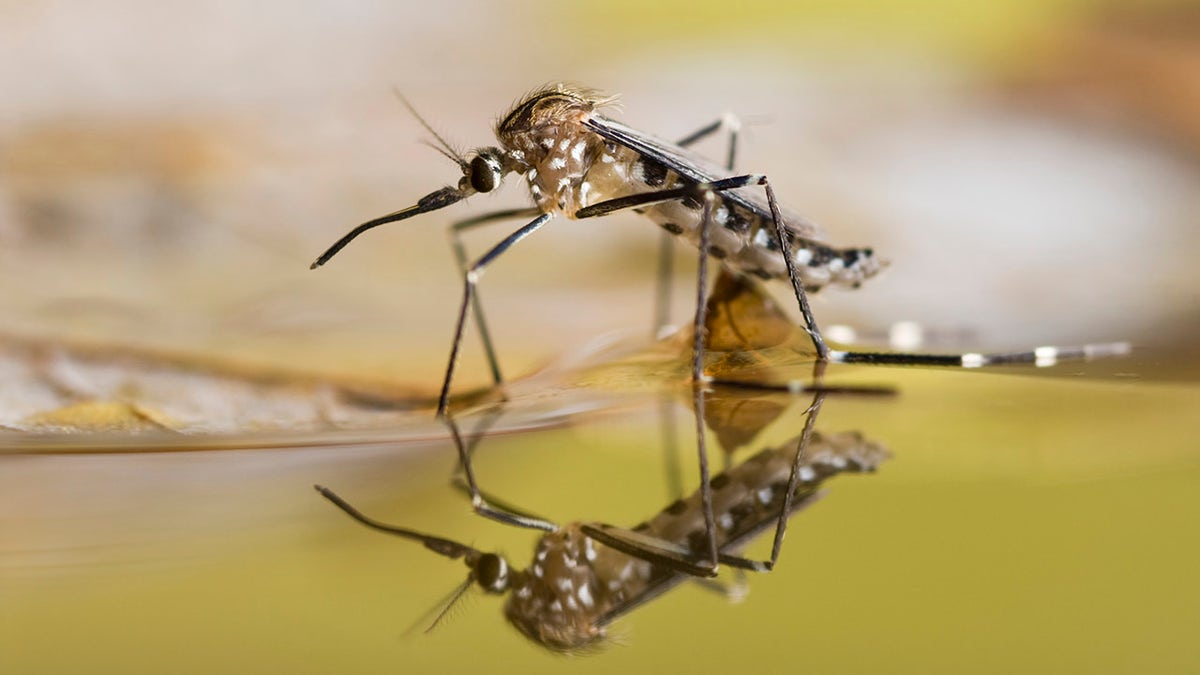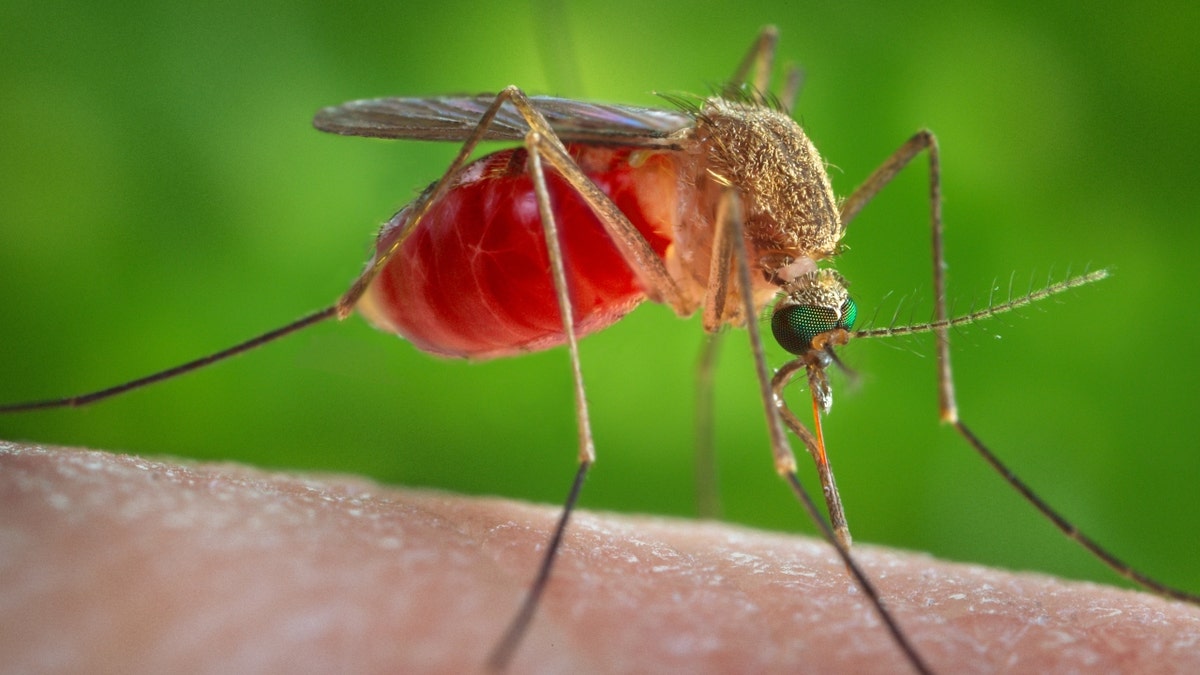
Two Massachusetts residents have contracted the mosquito-born West Nile virus in the state’s first human cases of the year.
The Massachusetts Department of Public Health (DPH) announced Tuesday, August 29 that one woman in her 70s was exposed to the virus in another area of the country and a man in his 40s was exposed in Middlesex County in Massachusetts.

Two Massachusetts residents have contracted West Nile virus in the state’s first human cases this year. (Jon Cherry/Getty Images)
Authorities noted that the virus is at a moderate risk level in the Greater Boston area, which includes Middlesex County, Norfolk County and Suffolk County, as well as in parts of Bristol County, Plymouth County, Worcester County, Hampden County, Hampshire County and Berkshire County.
WHICH ARM SHOULD YOU USE FOR THE COVID VACCINE AND BOOSTER? IT REALLY DOES MATTER, STUDY SUGGESTS
“This is the first time that West Nile virus infection has been identified in Massachusetts residents this year,” said Public Health Commissioner Robert Goldstein, MD, PhD.

New York City is dealing with a record number of mosquitoes infected with the West Nile virus, according to the city’s health department. (iStock)
Goldstein said that August and September are the highest risk months for contracting the deadly virus.
“Populations of mosquitoes that can carry and spread this virus are fairly large this year, and we have seen recent increases in the number of WNV-positive mosquito samples from multiple parts of the Commonwealth,” Goldstein said.
MOSQUITOES IN HOT WEATHER: THE MENACE YOU MUST KNOW ABOUT
In 2022, there were eight human cases of the West Nile virus infection identified in Massachusetts, with the first being announced on August 25. The first case of 2021 came on September 1.
Since the West Nile virus first entered the U.S. in 1999, it has become the leading cause of mosquito-borne disease in the country, according to the Centers for Disease Control and Prevention (CDC).
In most cases, the West Nile virus — a flavivirus in the same family as yellow fever, dengue fever, Japanese encephalitis and the Zika virus — is spread when Culex mosquitoes bite infected birds and then bite people and other animals, according to the CDC’s website.

A Culex quinquefasciatus mosquito is seen on the skin of a human host in this 2014 picture from the Center for Disease Control. C. quinquefasciatus is known as one of the many arthropodal vectors responsible for spreading the arboviral encephalitis, West Nile virus (WNV) to human beings through their bite. (REUTERS/CDC/James Gathany)
The virus is not transmitted through eating or handling infected animals or birds, nor is it spread through physical contact, coughing or sneezing.
A vast majority — around 80% — of the people who contract WNV will not experience any symptoms, the CDC states on its website.
“These people would only know there were previously infected if blood antibodies were checked,” explained Dr. George Thompson, professor of medicine at UCDavis Medical Center in Sacramento, in an email to Fox News Digital.
CLICK HERE TO SIGN UP FOR OUR HEALTH NEWSLETTER
Around one in five people will develop febrile illness, which is marked by a fever along with body aches, headache, joint pain, diarrhea, rash and/or vomiting. These symptoms usually go away on their own, but some people may have lingering weakness and fatigue months after infection.

West Nile virus, WNV, 3D illustration. A virus that is transmitted by mosquito and causes West Nile fever (iStock)
In rare cases — about one in every 150 infected people — the virus can lead to serious conditions affecting the nervous system, such as encephalitis (inflammation of the brain) or meningitis (inflammation of the membranes that surround the brain and spinal cord), the CDC states on its website.
CLICK HERE TO GET THE FOX NEWS APP
Those who develop serious illness may experience headache, stiff neck, high fever, disorientation, vision loss, muscle weakness, convulsions, tremors, coma or paralysis, which occur when there is viral infection of the central nervous system.
Melissa Rudy contributed to this report.

 Latest Breaking News Online News Portal
Latest Breaking News Online News Portal




